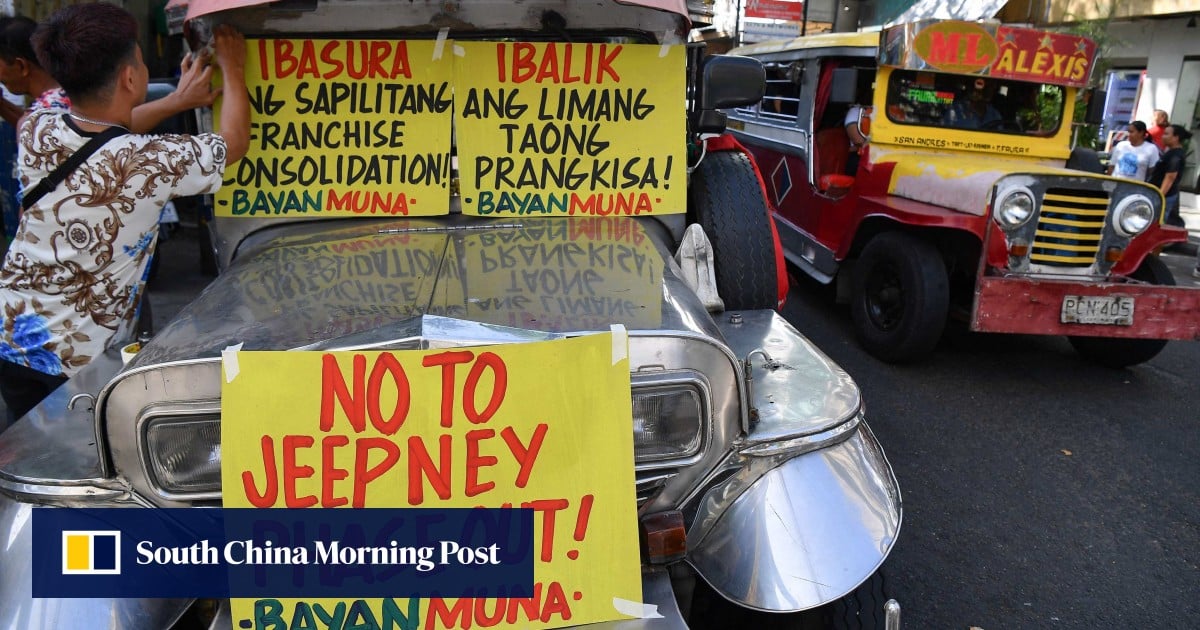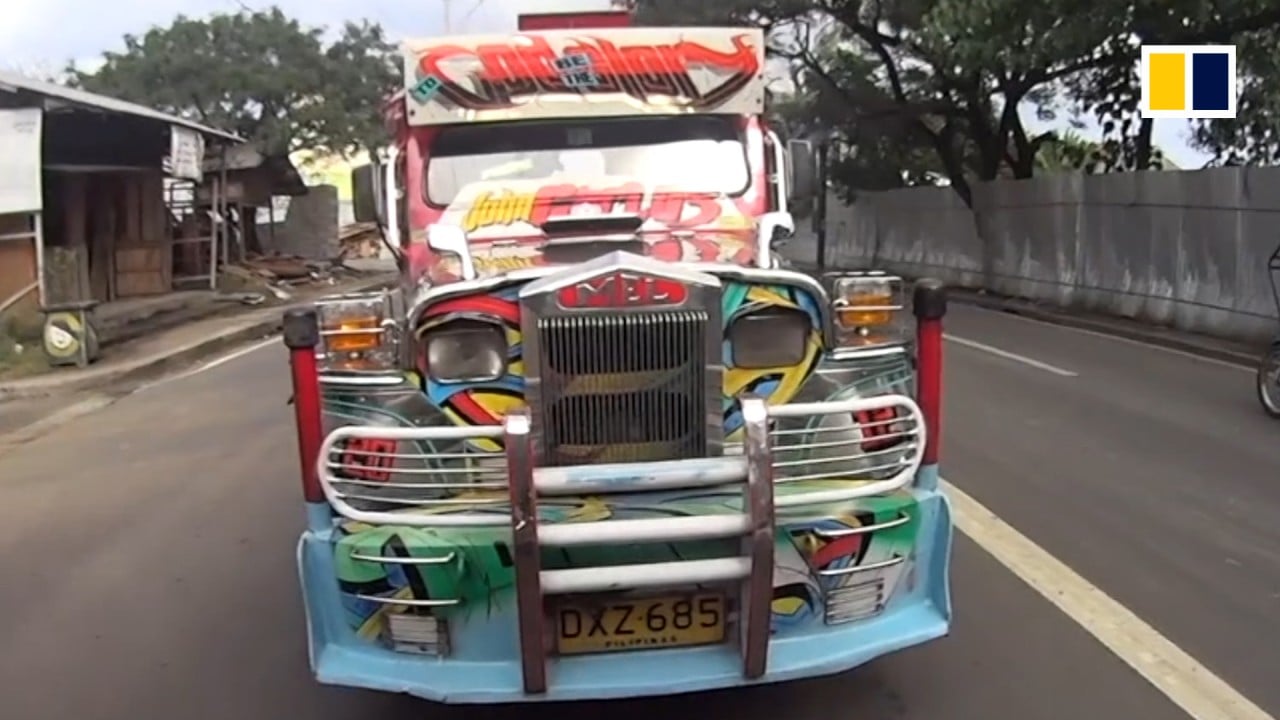Ortiz-Luis Jnr is an honorary chairman of the Philippine Chamber of Commerce and Industry (PCCI) and the honorary chairman and president of the Employers Confederation of the Philippines (ECOP).
Both the PCCI and ECOP, along with the Philippine Exporters Confederation Inc, are members of the “Leaders Forum” for the business side, while the Trade Union Congress of the Philippines, Sentro ng mga Nagkakaisa at Progresibong Manggagawa (Center of United and Progressive Workers) and Federation of Free Workers represent the labour side.
The group issued a statement on Sunday saying: “We believe that this programme, which includes the phaseout of jeepneys – a cultural icon in the Philippines – will impact the livelihoods of countless jeepney operators, drivers, and their families.
“We call for an urgent review of the PUVMP to address its legal, financial and human rights infirmities. It is evident that the principles of a ‘just transition’ have not been upheld in the formulation, execution, and oversight of the PUVMP.”
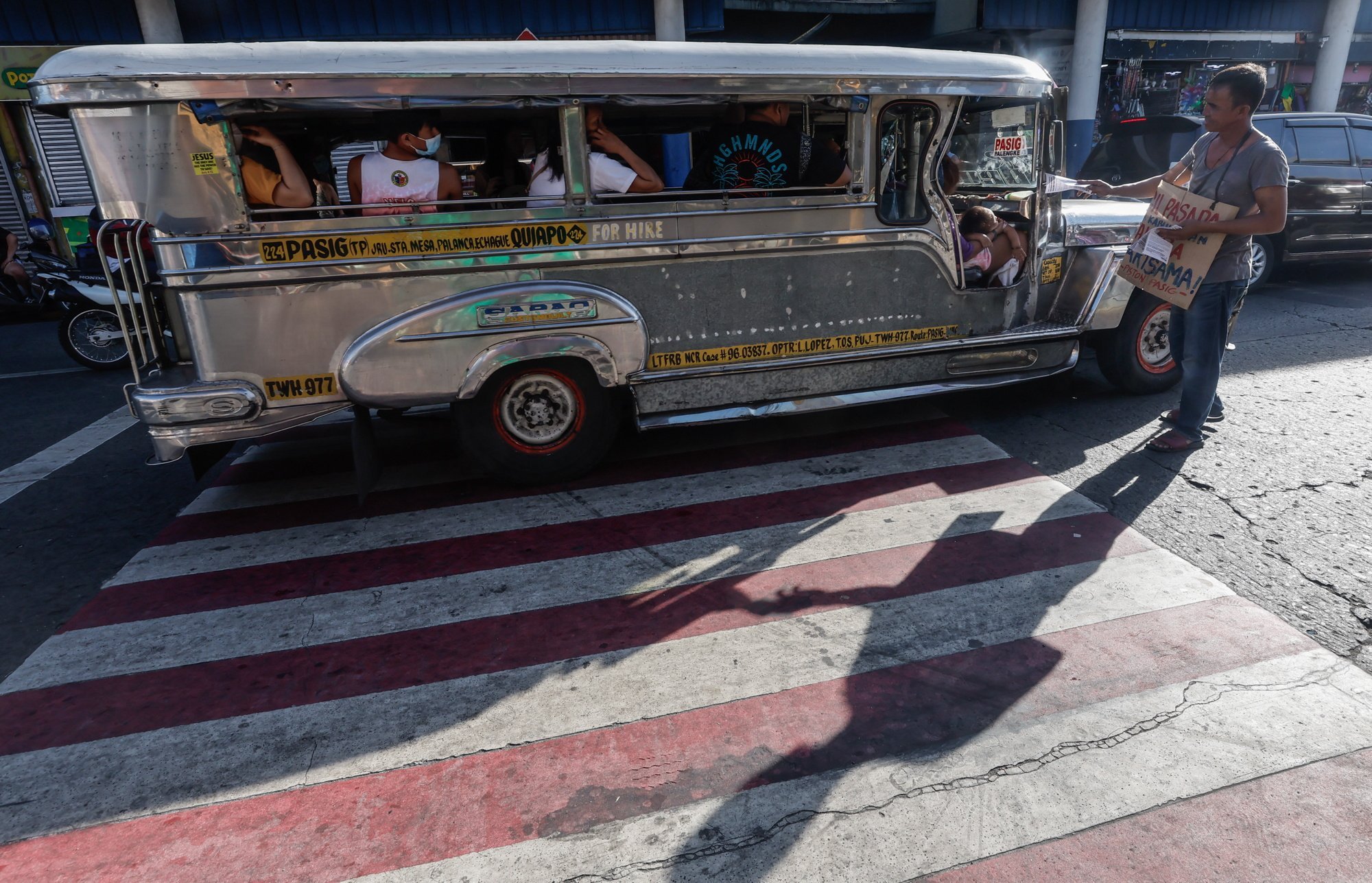
The government’s Public Utility Vehicle Modernisation Program (PUVMP) requires drivers to replace jeepney units that are at least 15 years old with eco-friendly models to form co-operatives and continue working.
Government agencies in charge of public transport placed the total number of existing jeepney units nationwide at 222,617, of which 69 per cent or 153,787 units had joined the programme as of January 1.
In its statement, however, the group cited flaws in the programme that affected jeepney operators, including the lack of consultation over the design of modern jeepneys or alternative vehicles.
“There has been no compensation for the surrender of their existing units. Furthermore, the importation of modern jeepneys, which range from 2.5 to 3 million pesos for an imported vehicle, is prohibitively expensive, making ownership unfeasible for many, even with amortisation options,” it added.
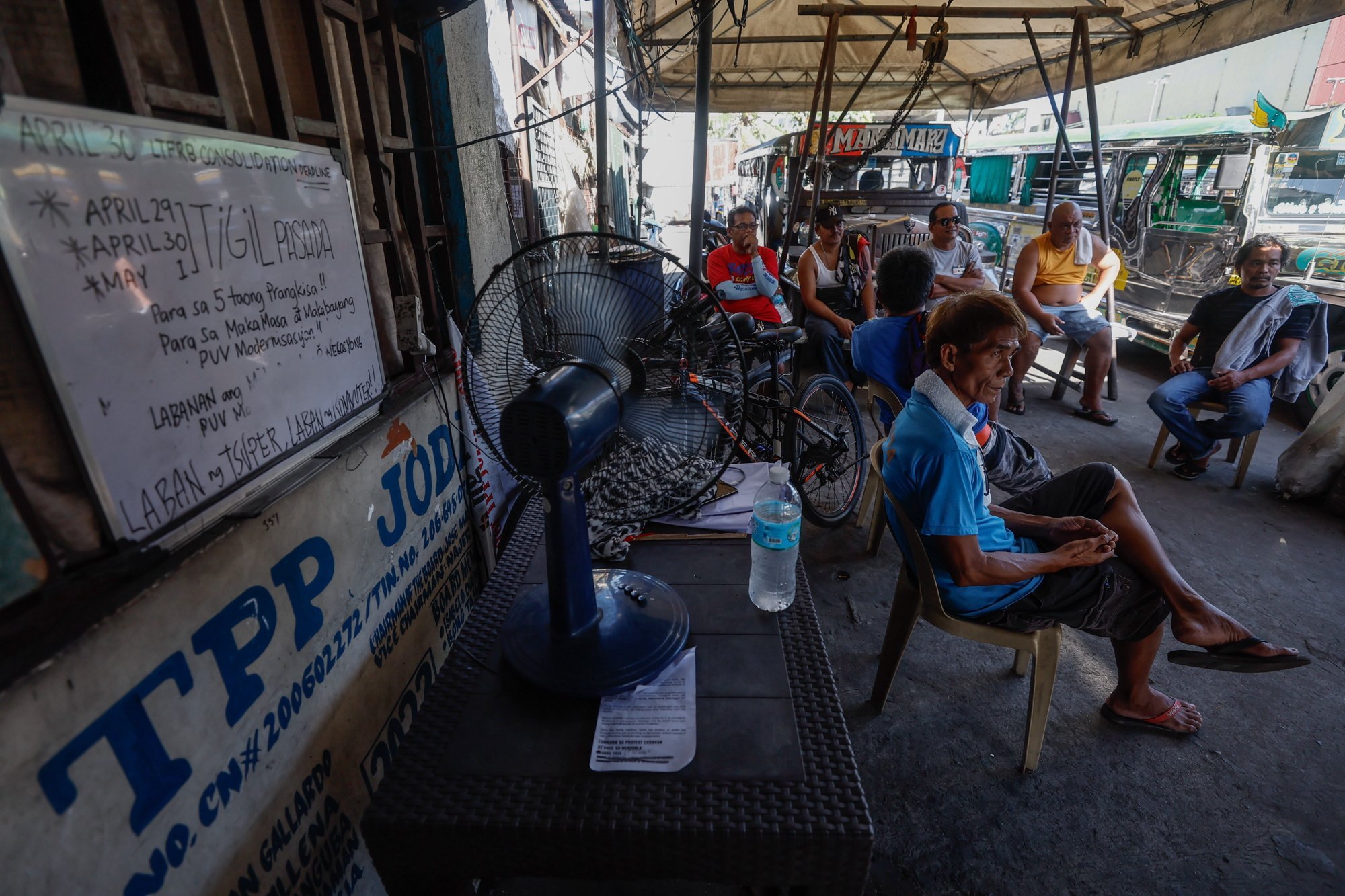
The group also noted that forcing jeepney drivers to consolidate by joining co-operatives “often without genuine consent or equitable participation – is against the spirit of cooperativism and likely to lead to significant collective-action problems.”
The phasing out of jeepneys without providing an affordable alternative for working-class commuters “could create a domino effect on domestic businesses and the economy, potentially raising the cost of living and feeding into inflation”, the group warned.
When asked why the group did not submit the statement to the presidential palace, Ortiz-Luis Jnr told This Week in Asia that “we just supported” the jeepney drivers and operators this time, and “it’s up to them [presidential palace] to come up with whatever action they would like to do”.
The Leaders Forum was formed at the height of the pandemic with the aim of promoting industrial peace. It urged then president Rodrigo Duterte to release “ayuda” or financial assistance to the public transport drivers affected by the pandemic.
Ortiz-Luiz Jnr said Sunday’s statement had been issued in the same spirit as the forum’s previous call for Duterte’s administration to help the jeepney drivers during the pandemic, when the government’s ban on public transport put the drivers’ livelihood at risk.
The Marcos Jnr government has so far not budged on the Tuesday deadline. The president said during a town hall meeting on April 10 that there would be no deadline extension for the modernisation initiative “[because] we very badly need it”.
Nevertheless, he promised he would ensure drivers “will not be heavily burdened by [the] amortisation and loan[s] they will incur”.

Roberto Martin, president of the Pasang Masda jeepney transport group, told Marcos Jnr at the town hall meeting that the jeepney sector was already consolidated nationwide by “almost 86 per cent” as of the first week of April, with 191,450 units having joined the initiative, leaving only 31,167 units unconsolidated.
Transport groups on strike, however, pointed out that most of the unconsolidated units were plying critical transport routes in Metro Manila.
The Land Transportation Franchising and Regulatory Board (LTFRB) said on Facebook on April 19 that each jeepney operator would be given 365,000 pesos (US$6,320) in cash to help with the purchase of a Euro-4 compliant modern jeepney.
The striking operators, however, called the amount “too little”.
The government has as yet made no mention of any assistance for drivers who refuse to join the programme, with the Leaders Forum noting that “38,000 will lose their jobs”.
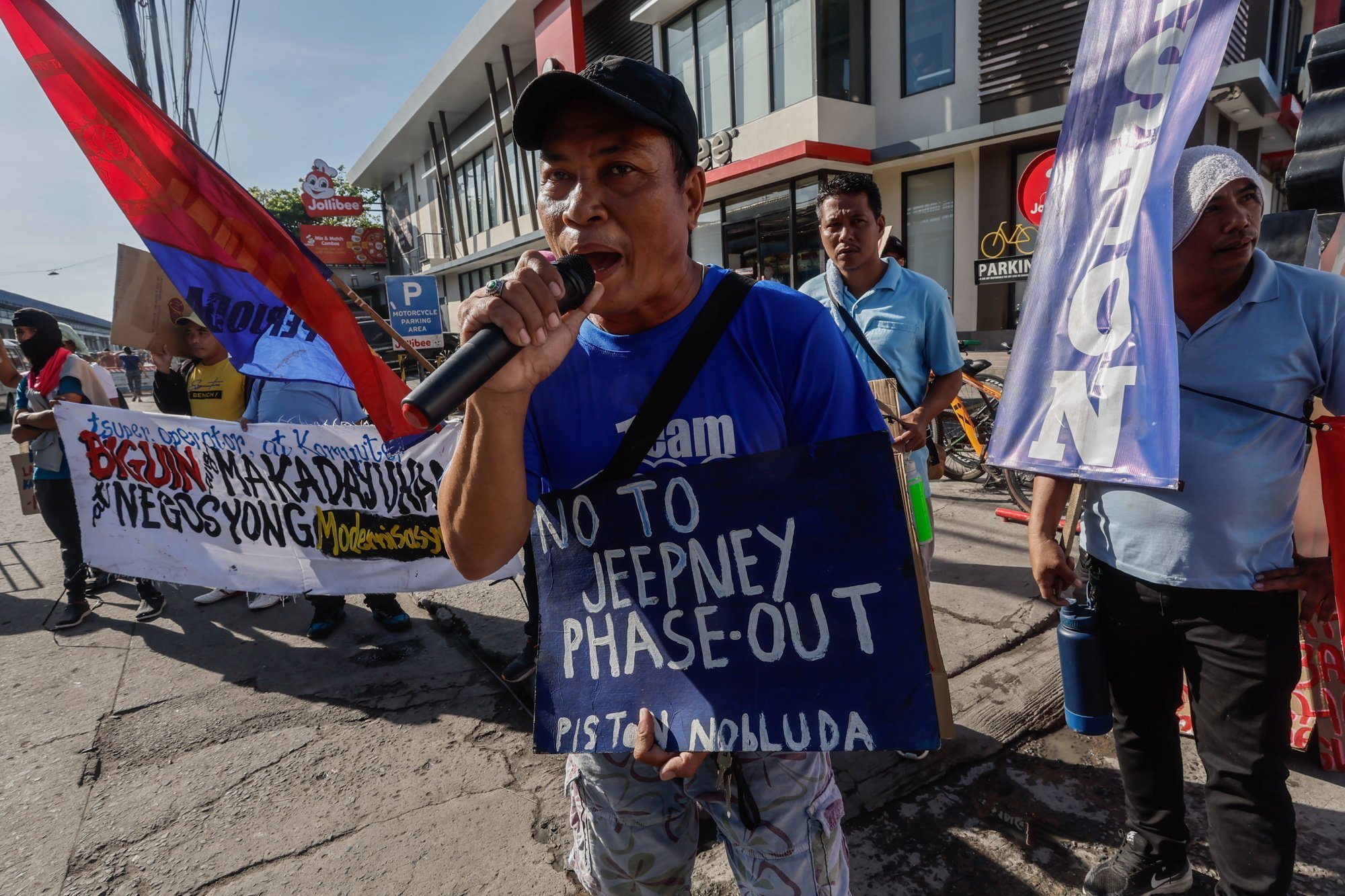
Groups opposed to the consolidation such as Manibela and Piston (Pagkakaisa ng mga Samahan ng Tsuper at Opereytor Nationwide or United Group of Drivers and Operators Nationwide) were not invited to Marcos Jnr’s town hall meeting.
Both groups, which have a total of nearly 200,000 members nationwide, together launched a three-day strike on Monday.
Manibela, which stands for Samahang Manibela Mananakay at Nagkaisang Terminal ng Transportasyon (Association of Drivers, Commuters and Terminal Transport Groups), also called on the Supreme Court to issue a temporary restraining order on the government’s consolidation programme.
Studies have shown that the bulk of jeepney drivers, who belong to the country’s poorest sector, are among the most vulnerable when they lose their livelihoods.
The LTFRB said it would give unconsolidated jeepneys a 15-day grace period after the Tuesday deadline – which remains unchanged – to operate, after which the vehicles would be impounded and the drivers fined.

